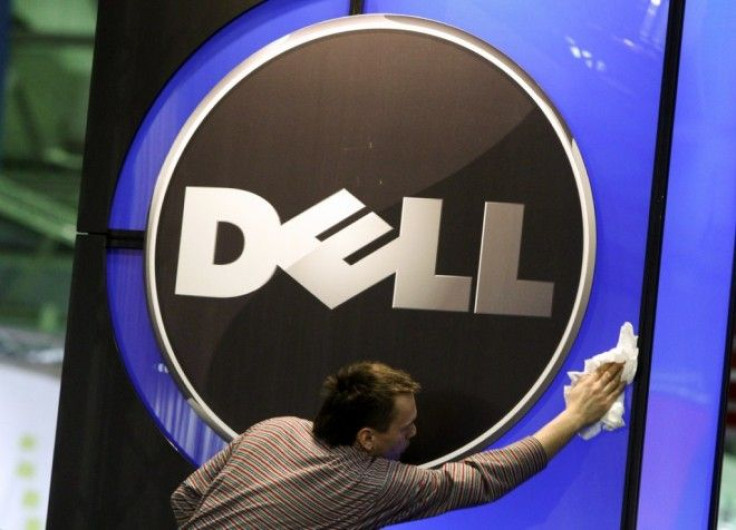Why Dell Opted For Biggest Technology Private Equity Deal

Unless another party emerges soon with a higher bid than $24.4 billion, Dell Inc. (NASDAQ:DELL), the No. 3 PC maker, will soon become a private company, managed by CEO Michael S. Dell but with a new partner, Egon Durban, a managing director of Silver Lake Partners, among the top technology private equity firms.
That means after nearly 30 years of being his own boss, Dell, 47, won’t have to report to lots of other shareholders but mainly to Durban, 38, whose Menlo Park, Calif., firm will control a huge slice of the company, along with Microsoft Corp. (NASDAQ:MSFT), the No. 1 software company, which is contributing $2 billion.
Dell will put his 15.7 percent stake plus another $700 million from his MSD Ventures into the pot for a significant stake in the “new” Dell. Then four banks will syndicate about $15 billion worth of loans to pay the rest off over time.
Why shift from public company to private?
First reason: More than half of Dell’s business now comes from selling PCs and hardware in a declining market. The company expects to report fourth-quarter results on Feb. 19, but market researchers at Gartner Inc. (NYSE:IT) already reported overall global PC shipments fell 4.9 percent in the quarter and 3.5 percent for all of 2012.
The Round Rock, Texas, company has spent more than $17 billion buying storage, services and software companies, including Perot Systems, Compellent Technologies and Quest Software in the past five years to head upwards, competing with Hewlett-Packard Co. (NYSE:HPQ) and International Business Machines Corp. (NYSE:IBM) in the more profitable market for services.
Going private, which will take months, will remove the company from Wall Street’s eye and allow Dell to focus on the strategy.
Silver Lake's Durban may be helpful here because of his experience with a number of other technology deals, especially SunGard Data Systems, the provider of services to Wall Street firms and the education market whose 2005 buyout for $11.3 billion set the record for largest in technology. Silver Lake owns a big chunk of SunGard.
He’s also a director NXP Semiconductors (NASDAQ:NXPI), the former chip-making unit of Philips NV (NYSE:PHG), which was taken private by Silver Lake and other private equity buyer, including Kohlberg Kravis Roberts (NYSE:KKR) in a $9.4 billion buyout in 2006, and then went public again in 2010. NXP shares traded Tuesday at $29.99, valuing the company at only $7.43 billion.
So Durban may advise Dell that going private works both ways.
“It may be better for them to be private while they figure out what they want to be when they grow up,” an investment banker not involved in the deal said.
Dell’s financial advisers are JPMorgan Chase (NYSE:JPM) and Evercore Partners (NYSE:EVR).
Second reason: It buys time for Dell. By valuing the entire company above $24 billion, the deal means hedge funds and others can’t buy in and try for a shake-up as they’ve done over the past two years with fallen angels, including Yahoo Inc. (NASDAQ:YHOO), the No. 3 search engine, AOL Inc. (NYSE:AOL) and BlackBerry (NASDAQ:BBRY), the Canadian smartphone developer.
Dell shares have plunged 43 percent over the past decade and 24 percent over the past year.
Other companies, headed by HP, now the No. 2 PC player behind China’s Lenovo Group (PINK:LNVGY), weighed selling their PC units then decided to keep them due to economies of scale, as well as the benefits of having a one-stop source for technology products for enterprises.
Dell buys time for this as the company determines if it wants to get into tablets in a major way or enter smartphones or perhaps just become a services provider.
“Michael Dell’s willingness to take the risk in the equity portion of the deal is they key reason why we believe it is likely to get done,” Peter Misek, analyst with Jefferies, said.
Third reason: It allows Michael Dell to retain indefinite control of the enterprise. He founded it in his University of Texas dorm room as PC’s Limited in 1984 and built into a global colossus using a technology then called IBM-compatible.
By pricing below the old IBM PC, as well as competing units from Compaq Computer, later acquired by HP, and scores of extinct vendors, Dell scraped by with consumers because its PCs were cheaper, built-to-order and came with good customer service.
Over time and after a 1988 initial public offering, Dell’s company became a multinational, with domestic and then international assembly lines, as it forged close ties to Intel Corp. (NASDAQ:INTC), the No. 1 chipmaker, as well as Microsoft, both of which remain key partners.
There were management problems over time, including currency losses in the treasurer’s office, as well as reports of exploding laptops, battery problems and other quality issues. Dell personally handled the responses and fixed the problems.
In 2004, Dell briefly stepped aside as CEO for Kevin Rollins, a management expert from McKinsey, but came back after Dell lost market share to HP and its share price sagged.
The deal indicates he plans to be running Dell well into his 50s, if not beyond, because most buyouts are targeted to run at least five years. Some, like SunGard, have already lasted eight.
Shares of Dell rose 15 cents to $13.42 in Tuesday trading, valuing the company around $23.3 billion.
© Copyright IBTimes 2024. All rights reserved.












